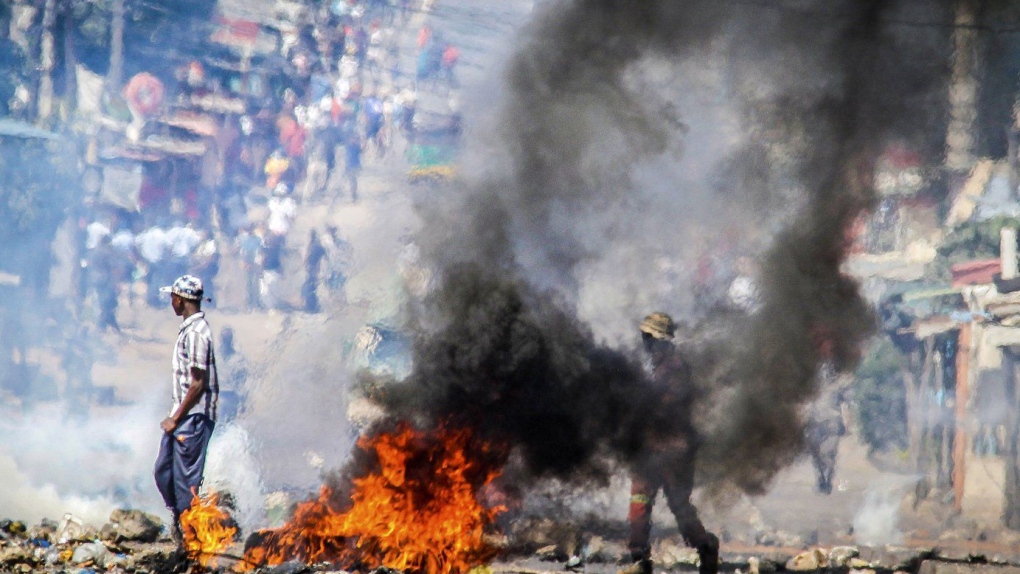South Africa closes border with Mozambique amid electoral violence

The recent closure of the South African-Mozambican border, prompted by escalating electoral violence in Mozambique, has raised concerns about regional security and the ongoing humanitarian crisis.
South African authorities temporarily shut the Lebombo border crossing, which connects the two countries, in response to the violent unrest gripping the town of Ressano Garcia, located just across from the South African border post.
The decision, announced by the South African Border Management Authority (BMA), follows a series of security incidents on the Mozambican side.
In an effort to protect both travelers and border officials, the South African authorities suspended all activity at the main border crossing.
The unrest in Mozambique has intensified in the wake of recent elections, which have been marred by widespread opposition protests.
The demonstrations are primarily led by opposition groups who challenge the controversial re-election of the ruling Frelimo party, which has been in power since 1975.
Opposition leaders, including Venancio Mondlane, claim that the election was tainted by fraud.
These protests have spiraled into violent riots, with scenes of chaos unfolding on the streets of Ressano Garcia, including the torching of vehicles and the destruction of immigration offices.
The violence forced South African officials to take decisive action. Commissioner Michael Masiapato confirmed that the border closure was a precautionary measure to ensure the safety of all individuals using the crossing.
“We are taking these steps to safeguard the lives of all travelers, merchants, and officials,” he explained.
The situation has escalated further, with reports of significant loss of life and injuries.
Amnesty International has confirmed at least 20 fatalities, with hundreds more injured or arrested since the onset of the protests.
The Mozambican government has responded by deploying tear gas and live ammunition to disperse crowds, marking the most violent crackdown the country has seen in years.
Internet access has been restricted, and authorities have warned of the possibility of sending troops to quell the unrest.
In response to the crisis, South African authorities are closely monitoring the situation, working alongside local police and military forces.
Travelers and traders are advised to seek alternative routes, although the closure has led to severe congestion at nearby roads, with truck queues stretching for miles.
Both South African and Mozambican officials are in ongoing communication, exploring potential solutions and considering the reopening of the border once security conditions allow.
The collaboration between the two nations will be crucial in managing the current border crisis and easing the political tensions that continue to fuel the unrest in Mozambique.
About The Author
dailymailafric
I am an avid African news observer, and an active member of Daily Mail Africa.
I’m Passionate about staying informed on diverse topics across the continent,
I actively contribute to publishing on political, economic and cultural developments in Africa.



